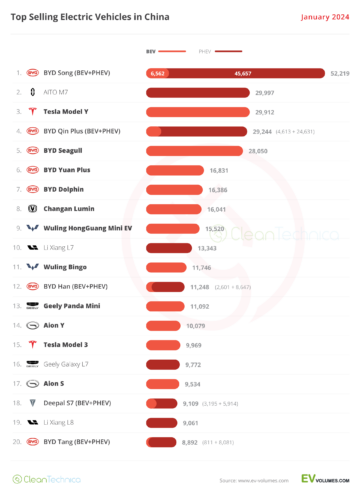Sign up for daily news updates from CleanTechnica on email. Or follow us on Google News!
Amy Westervelt is an American environmental journalist. She is the founder of the podcast Critical Frequency and hosts the popular podcast Drilled, which has been downloaded more than a million times. She reports frequently on environmental issues, especially the role of fossil fuel companies in degrading the environment. Kyle Pope is an American journalist who is the editor and publisher of the Columbia Journalism Review. He also has written numerous articles about fossil fuel companies and climate change. Together they penned an article for The Guardian this week that describes how fossil fuel companies adapt the disinformation they create to meet changes in the social and political environment.
They say that while the PR tactics used by fossil fuel companies have changed, the stories they tell are pretty much the same from year to year. Instead, they are adapted in response to events that are happening in the world. When politicians talk about how much it will cost to act on climate change, for example, they almost always refer to economic models commissioned by the fossil fuel industry. What they leave out, however, is the cost of inaction, which increases with every passing year. When politicians say that climate policies will increase the cost of gas or energy, they count on reporters not understanding how lobbying by fossil fuel companies or subsidies for the industry affect those prices. Here are five areas that Westervelt and Pope say best illustrate the primary distortions promoted by the fossil fuel industry
Energy Security & Fossil Fuel
From fueling wars to preserving national security, the fossil fuel industry loves to trumpet its role in keeping the world safe, even when it is engaging in geopolitical brinksmanship that makes everyone decidedly less so. In the context of national security, it’s worth noting that the US military started funding net-zero programs in 2012 and listing climate change as a threat multiplier in its Quadrennial Defense Review a decade ago. But oil companies and their trade groups ignore that reality and instead insist the threat is in reducing fossil fuel dependence.
We’ve seen this recently in industry messaging concerning the Russia–Ukraine war. Even before Putin invaded Ukraine, the party line from fossil fuel companies was that a global liquified natural gas (LNG) boom was the solution to short-term energy shortages in Europe. The industry has been noticeably quiet on the Israel–Palestine war, but is pushing generalized “we keep you safe” messaging that emphasizes global instability. In the US, energy security narratives often have nationalistic undertones, with messages pushing the global environmental and security benefits of US fossil fuel over that from countries like Qatar or Russia.
It is true that energy self-sufficiency contributes to the stability of any nation, but there’s no rule that says energy has to come from hydrocarbons. In fact, it’s well documented that depending on an energy source vulnerable to the whims of world commodity markets and global conflicts is itself a recipe for volatility.
The Economy Versus The Environment
Westervelt and Pope point out that in 1944, when it looked like the second world war would end soon, PR guru Earl Newsom pulled together his corporate clients — including Standard Oil of New Jersey (now ExxonMobil), Ford, GM and Procter & Gamble — and crafted a top secret post-war strategy to keep the US public convinced of the “worth of the free enterprise system.” From school curricula, to Hollywood-crafted animated shorts, to industry presentations, to media interviews, the fossil fuel industry has hammered these themes repeatedly for decades and often points to studies from fossil fuel groups like the American Petroleum Institute as proof that taking care of the environment is bad for the economy.
In 2021, a peer-reviewed paper entitled Weaponizing Economics tracked the activity over decades of a group of economic consultants who were hired by the petroleum industry. “They produced analyses that were then used by both companies and politicians … to tell the public that it would just be way too expensive to act on climate, and that in any case, climate change was not going to be a big deal, so the best thing to do would be to do nothing. Ben Franta, head of the Climate Litigation Lab at Oxford University, was a co-author of that report.
Chip in a few dollars a month to help support independent cleantech coverage that helps to accelerate the cleantech revolution!
These tactics also show up in ads that remind us to balance a desire for reduced emissions with the need to keep the economy going. One BP ad recently running on NPR, the New York Times and Washington Post podcasts states that oil and gas equals jobs and argues for adding renewables, rather than replacing fossil fuels.
Fossil Fuel Makes Your Life Work
The fossil fuel industry loves to argue that it makes the world work — from keeping the lights on to keeping us riveted by smart phones and TV, and clothed in fast fashion. It’s genius: create a product, create demand for the product, and then shift the blame to consumers not just for buying it but also for its associated impacts. “Basically it’s a propaganda campaign,” said Brown University environmental sociologist Robert Brulle. “And you don’t have to use the words ‘climate change’. What they’re doing is they’re seeding in the collective unconscious the idea that fossil fuels equals progress and the good life.”
Advertisements like the Our Lives Are Petroleum campaign from Energy Transfer Partners has been running since 2021. It serves the purpose of shaming people into keeping quiet on climate unless they have successfully rid their own lives of hydrocarbons. The logic goes, if you use a phone or drive a car — or live in the modern world at all — you’re the problem, not the companies that have worked for decades to make their products seem indispensable and block any alternatives to them. Most readers will recognize this as a variation of the Crying Indian campaign run by the plastics industry to convince us we are the reason for mountains of single use plastics in the environment, not the companies that manufacture them.
We’re Part Of The Solution
Nothing keeps away regulation like promises of voluntary solutions that make it seem like the fossil fuel industry is really trying, Westervelt had Pope write. In a 2020 exposé, Greenpeace’s investigative newsroom, Unearthed, caught an Exxon lobbyist on camera explaining this tactic had worked with a carbon tax to head off emissions regulations and how the company was pursuing the same strategy with plastic. Working with the American Chemistry Council to roll out voluntary measures like “advanced recycling”, the lobbyist, Keith McCoy, said the goal was to “get ahead of government intervention.”
As with climate change, McCoy explained, if the industry can make it seem as though it was working on solutions, it could keep outright bans on single-use plastics at bay. Today this narrative shows up in the industry’s push for carbon capture, biofuels, and methane-based hydrogen solutions like blue, purple, and turquoise hydrogen. We also see it in the industry’s embrace of the term “low carbon” to describe not only fossil fuel enabling solutions like carbon capture, but also “natural gas,” which industry lobbyists are successfully selling to politicians as a climate solution.
The World’s Greatest Neighbor
Just in case people still aren’t accepting of dirty air, dirty water, and climate change, the fossil fuel industry funds museums, sports, aquariums, and schools, serving the dual purpose of cleaning up its image and making communities feel dependent on the industry and thus less likely to criticize it. Westervelt and Pope say journalists and their audiences have more power to combat climate disinformation than they might think when they are awash in the lies that get repeated ad infinitum. Understanding the classic narratives the fossil fuel industry peddles constantly is a good starting point to begin pushing back on the lies, misstatements, and falsehoods that constantly spew from industry sources.
Have a tip for CleanTechnica? Want to advertise? Want to suggest a guest for our CleanTech Talk podcast? Contact us here.
Latest CleanTechnica.TV Video
[embedded content]
Advertisement
CleanTechnica uses affiliate links. See our policy here.
- SEO Powered Content & PR Distribution. Get Amplified Today.
- PlatoData.Network Vertical Generative Ai. Empower Yourself. Access Here.
- PlatoAiStream. Web3 Intelligence. Knowledge Amplified. Access Here.
- PlatoESG. Carbon, CleanTech, Energy, Environment, Solar, Waste Management. Access Here.
- PlatoHealth. Biotech and Clinical Trials Intelligence. Access Here.
- Source: https://cleantechnica.com/2024/04/16/how-can-you-tell-fossil-fuel-executives-are-lying-their-lips-are-moving/
- :has
- :is
- :not
- $UP
- 2012
- 2020
- 2021
- 400
- a
- About
- accelerate
- accepting
- Act
- activity
- Ad
- adapt
- adapted
- adding
- Ads
- Advertise
- affect
- Affiliate
- ago
- ahead
- AIR
- All
- almost
- also
- alternatives
- always
- American
- an
- analyses
- and
- any
- ARE
- areas
- argue
- Argues
- article
- articles
- AS
- associated
- At
- audiences
- away
- back
- Bad
- Balance
- Bans
- Bay
- BE
- been
- before
- begin
- ben
- benefits
- BEST
- Big
- Block
- Blue
- boom
- both
- BP
- brown
- Brown University
- but
- Buying
- by
- camera
- Campaign
- CAN
- capture
- car
- carbon
- carbon capture
- care
- case
- caught
- change
- changed
- Changes
- chemistry
- classic
- cleantech
- Cleantech Talk
- clients
- Climate
- Climate change
- Co-Author
- Collective
- combat
- come
- commodity
- Communities
- Companies
- company
- concerning
- conflicts
- constantly
- consultants
- Consumers
- content
- context
- contributes
- convince
- convinced
- Corporate
- Cost
- could
- Council
- count
- countries
- crafted
- create
- deal
- decade
- decades
- decidedly
- Defense
- Demand
- dependence
- dependent
- Depending
- describe
- describes
- desire
- disinformation
- do
- documented
- doing
- dollars
- Dont
- downloaded
- drive
- dual
- Economic
- economy
- editor
- embedded
- embrace
- Emissions
- emphasizes
- enabling
- end
- energy
- engaging
- Enterprise
- entitled
- Environment
- environmental
- Equals
- especially
- Ether (ETH)
- Europe
- Even
- events
- Every
- everyone
- example
- executives
- expensive
- explained
- explaining
- exxonmobil
- fact
- falsehoods
- Fashion
- FAST
- feel
- few
- five
- For
- Ford
- fossil
- Fossil fuel
- fossil fuels
- founder
- Free
- frequently
- from
- Fuel
- fueling
- fuels
- funding
- funds
- Gamble
- GAS
- generalized
- genius
- geopolitical
- get
- Global
- GM
- goal
- Goes
- going
- good
- Government
- government intervention
- greatest
- Group
- Group’s
- Guest
- had
- hammered
- Happening
- Have
- he
- head
- helps
- here
- his
- hosts
- How
- However
- HTTPS
- hydrogen
- idea
- if
- ignore
- illustrate
- Impacts
- in
- Including
- Increase
- Increases
- independent
- indispensable
- industry
- industry’s
- instability
- instead
- Institute
- intervention
- Interviews
- into
- investigative
- issues
- IT
- ITS
- itself
- Jersey
- Jobs
- journalism
- Journalists
- just
- Keep
- keeping
- keith
- kyle
- lab
- Leave
- less
- lies
- Life
- lights
- like
- likely
- Line
- links
- listing
- Litigation
- live
- Lives
- lng
- lobbying
- lobbyists
- logic
- looked
- loves
- make
- MAKES
- Making
- Markets
- max-width
- measures
- Media
- Meet
- messages
- messaging
- might
- Military
- million
- models
- Modern
- Month
- more
- most
- much
- Museums
- NARRATIVE
- narratives
- nation
- National
- national security
- Natural
- Natural Gas
- Need
- net-zero
- New
- New Jersey
- news
- no
- nothing
- noticeably
- noting
- now
- numerous
- of
- off
- often
- Oil
- Oil and Gas
- on
- ONE
- only
- or
- our
- out
- outright
- over
- own
- Oxford
- oxford university
- Paper
- part
- partners
- party
- Passing
- peer-reviewed
- penned
- People
- Petroleum
- phone
- phones
- plastic
- plastics
- plato
- Plato Data Intelligence
- PlatoData
- player
- podcast
- Podcasts
- Point
- points
- policies
- policy
- political
- Politicians
- pope
- Popular
- power
- pr
- Presentations
- preserving
- pretty
- Prices
- primary
- Problem
- Produced
- Product
- Products
- Programs
- Progress
- promises
- Promoted
- proof
- Propaganda
- public
- publisher
- purpose
- pursuing
- Push
- Pushing
- Putin
- Qatar
- quiet
- rather
- readers
- Reality
- really
- reason
- recently
- recipe
- recognize
- Reduced
- reducing
- refer
- Regulation
- regulations
- Renewables
- repeated
- REPEATEDLY
- report
- Reports
- response
- review
- Rid
- ROBERT
- Role
- Roll
- Rule
- Run
- running
- Russia
- safe
- Said
- same
- say
- says
- School
- Schools
- Second
- Second world war
- Secret
- security
- security benefits
- see
- seem
- seen
- Selling
- serves
- serving
- she
- shift
- short-term
- shortages
- shorts
- show
- Shows
- since
- single
- smart
- smart phones
- So
- Social
- solution
- Solutions
- Soon
- Source
- Sources
- Sports
- Stability
- standard
- started
- Starting
- States
- Still
- Stories
- Strategy
- studies
- Successfully
- suggest
- support
- system
- tactics
- taking
- Talk
- tax
- tell
- term
- than
- that
- The
- the world
- their
- Them
- themes
- then
- These
- they
- thing
- Think
- this
- this week
- those
- though?
- threat
- Thus
- times
- tip
- to
- today
- together
- too
- tracked
- trade
- transfer
- true
- trying
- tv
- Ukraine
- understanding
- university
- unless
- Updates
- us
- US military
- use
- used
- uses
- Versus
- Video
- Volatility
- voluntary
- Vulnerable
- want
- war
- was
- Water
- Way..
- we
- week
- WELL
- were
- What
- when
- which
- while
- WHO
- Wikipedia
- will
- with
- words
- Work
- worked
- working
- world
- world’s
- worth
- would
- write
- written
- year
- york
- you
- Your
- youtube
- zephyrnet









